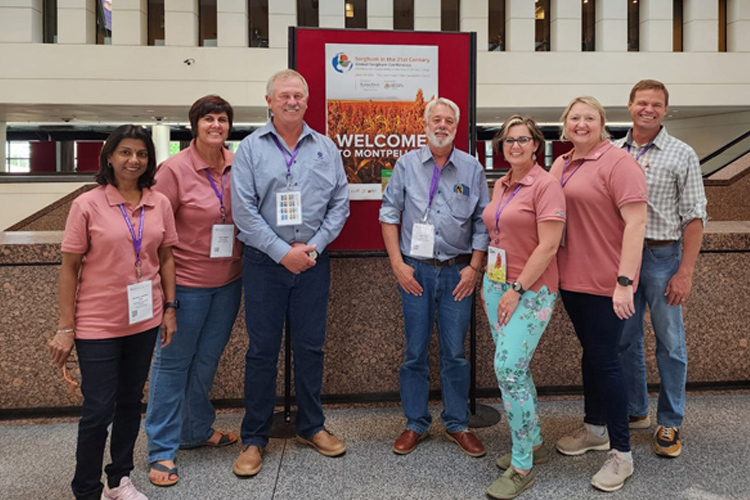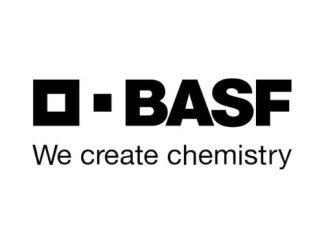2023’s international sorghum conference, themed ‘Resiliency and Sustainability in the Face of Climate Change’, kicked off on the 5th of June in Montpellier, France. More than 400 members of the global sorghum community from 40 countries around the world gathered with sorghum as the main point of discussion.
Delegates from 150 different companies ranging from researchers to the private sector, were able to strengthen current partnerships, build new networks, and discover innovations in sorghum research. Centred on resilience and sustainability, the conference covered the needs of the entire value chain while highlighting key challenges for sorghum around the world.
Globally, sorghum demand is anticipated to increase. The biggest expected driver for increased demand is sorghum’s natural nutritional value, in addition to being gluten-free, GMO-free and widely recognised as an ancient grain. Internationally, many different sorghum products are available, such as pasta, noodles, cookies, snacks, pretzels, wafers, crackers, sorghum milk, ice cream, coffee creamer, whipped cream, bread-baking sorghum flour and sorghum whiskey. Although these products are well known to South Africans, it is in the absence of sorghum as the base ingredient. In South Africa, consumption is declining and more emphasis should be placed on the marketing of sorghum products and the different uses thereof to better make use of its untapped benefits.
It was interesting to note that in Africa, more specifically in rural West Africa, a primary focus was placed on improving the taste of sorghum. Research needs to find innovative strategies that promote formulation and consumption of fortified sorghum foods.
Conference focus areas
The five-day-long conference showcased the latest science developments while focusing on sorghum’s role as a key solution for numerous challenges, including climate change impacts, evolving nutritional requirements, and a shift in market demands for both food and feed.
Need for resilience and drought-tolerant crops
Keynote speaker Nathalie de Noblet-Ducoudré (Université Paris-Saclay, France) presented the current state of climate change and its potential future. With warming trends continuing, rapidly escalating hazards will rise in frequency. These include more intense heatwaves, heavier precipitation, more frequent drought, and new compound events (such as a combination of drought and heatwaves). Climate trends have both observed and projected impacts on agriculture on a global scale. Throughout the week, sorghum’s role in responding to these changes as a resilient, heat-tolerant, and water-smart crop was explored.
Changing climate requires reactive breeding programmes
Worldwide, the sorghum industry is facing decreasing trends due to numerous reasons, of which GM technology in maize and soybeans is one of the main reasons. Sorghum cultivars can’t compete with the high-yielding cultivars that are available to the maize and soybean industry. With this in mind, the conference placed a lot of emphasis on the breeding of sorghum. Cultivar development in South Africa is lagging behind the rest of the world, especially when compared to the USA and Australia. In those countries, different cultivars are available for different products and different needs, which is not the case for South Africa.
Speakers Graeme Hammer (University of Queensland, Australia) and Laura Mayor (Corteva Agriscience, USA) discussed how the relationship between crop simulation and experimentation enables crop improvement to develop improved farming systems. Climate change requires breeding programmes to deliver varieties faster, which is crucial for agriculture to adapt. In some cases, it is becoming vital to breed for environments that don’t currently exist in breeding programmes’ targeted regions. Prediction methods are also becoming more important for plant breeders and increasingly need to be integrated with crop modelling and improved methods of measuring traits to enable faster genetic gain.
Global consumption patterns and dietary requirements
A roundtable discussion, consisting of industry and researchers, spoke about sorghum products and the consumption thereof. Prof Kwaku Gyebi Duodu (University of Pretoria (UP)), Monia Caramma (Switzerland), and Earl Roemer (Nu Life Market, USA) spoke on the international trends of sorghum consumption, which indicates a shift to greater consumption of sorghum as a food grain and a decrease in its utilisation as animal feed or a biofuel feedstock. The global demand for sorghum-based food products continues to increase in response to dietary needs, consumer market opportunities and novel opportunities addressed by food product innovators.
Europe’s market needs and shifting production systems
Valérie Brochet (FNPSMS, France), Boris Parent (INRAE, France), and David Pot (CIRAD, France) gave insight into the European value chain. In Europe, sorghum production ranges between 500 000 ha and 560 000 ha per year (grain and silage). Sorghum offers many benefits such as varieties adapted to the European climate and climate change threats, easy cultivation practices, grain versatility for various industries, and healthy, gluten-free characteristics. They emphasised how sorghum presents great possibilities for seed breeders, producers, industry, and consumers. The key challenges lie in reaching a critical size and creating investments in research and development to generate a large product offering for a dynamic demand for different sorghum uses. Additionally, the need for active research collaboration between Europe and Africa was emphasised.

South African participants and experience
It was mind-blowing to experience the excitement all participating role-players had towards sorghum and the future of sorghum as a crop. There was a tangible energy among individuals due to the potential prospects as to how sorghum can contribute to food and nutritional security in the midst of future climatic predictions with sorghum being a more drought-tolerant crop. The conference emphasised that climate change will be a leading factor in contributing to the turnaround strategy for sorghum.
The South African team had numerous meetings with influential international role-players, including the International Maize and Wheat Improvement Centre (CIMMYT), the Bill and Melinda Gates Foundation, Sorghum ID, Lidea (seed company), CIRAD (French Agricultural Research Centre for International Development) and many more. The engagements were very positive with role-players willing to share information for collaborations to achieve a bigger goal. An important aspect to take note of is that the growth and development of sorghum in South Africa will depend on the effort, energy and willingness of the industry itself to collaborate and jointly drive growth with the government as a key role-player.
South African delegates that attended the conference include:
- Willem Groothof – chairperson: Sorghum Trust (sorghum producer)
- Dawid Beets – vice chairperson: Sorghum Trust (Tiger Brands)
- Beatrix de Witt – CEO: Agri Manage Solutions
- Petru Fourie – SCI convenor: Agri Manage Solutions
- Dr Maneshree Jugmohan-Naidu – DSI (director: Agricultural Biotechnology)
- Japie Snyman – vice president: Grain Olam Global Agri
- Elize Botha – Sorgho (plant breeder)
- Prof Hussein Shimelis – University of KwaZulu-Natal (plant breeder)
- Prof Kwaku G Duodu – UP (food science)
- Rose Otema Baah – UP (student)
Awards
During the conference, numerous awards were given. The following were some of the main highlights.
A competition for the best presentation by an MSc/PhD student was organised and evaluated by three judges. The winners with their topics were as follows:
Best presenters
First place: Daniel Otwani, University of Queensland, Australia
Topic: Grain filling duration in sorghum: Opportunities for yield improvement
Summary: Yield increases in sorghum have been achieved primarily by increasing grain number. Scope exists to increase yield by increasing grain size, however, this has been limited by the negative correlation between grain size and grain number. These results reveal opportunities to exploit grain filling duration for improved genetic gains for yield.
Runner up: Genevieve Durrington, University of Queensland, Australia
Topic: CropGen: A new tool for optimising sorghum crop design for drought adaptation
Summary: As sorghum is an important food and feed crop, strategies to optimise its performance are needed. A new tool, CropGen, was presented for optimising sorghum design and yield. The genotype x environment x management (GxExM) interactions were discussed which are key in exploring strategies for guiding research and plant breeding efforts.
Sorghum Idea Challenge
Undoubtedly, one of the greatest highlights of the conference was the Sorghum Idea Challenge (SIC). The challenge was that any idea or project related to sorghum development (research, industry, business, technology extension, cooperation work, etc.) needed to be described in a short abstract of a maximum of 400 words.
The winner of this challenge was South Africa. The South African team consisted of Rose Otema Baah, Emilie Danielle Mbock and Charles Antwi for their exceptional project called “Production of tea sachets made of sorghum stem-sheath, enriched with ginger and cloves”.
South Africa can indeed be very proud as this was one of the most stringent competitions and Rose Otema Baah from UP won this 3-minute challenge with flying colours.
International sorghum conference – 2026
The Global Sorghum Association announced during the conference that Texas Tech University, along with members of its Davis College of Agricultural Sciences & Natural Resources, will host the third global sorghum conference. The conference is scheduled for 14 to18 September 2026 and will build on the successes of this year’s conference in Montpellier. The first global sorghum conference was held in 2018 in Cape Town, South Africa.



















